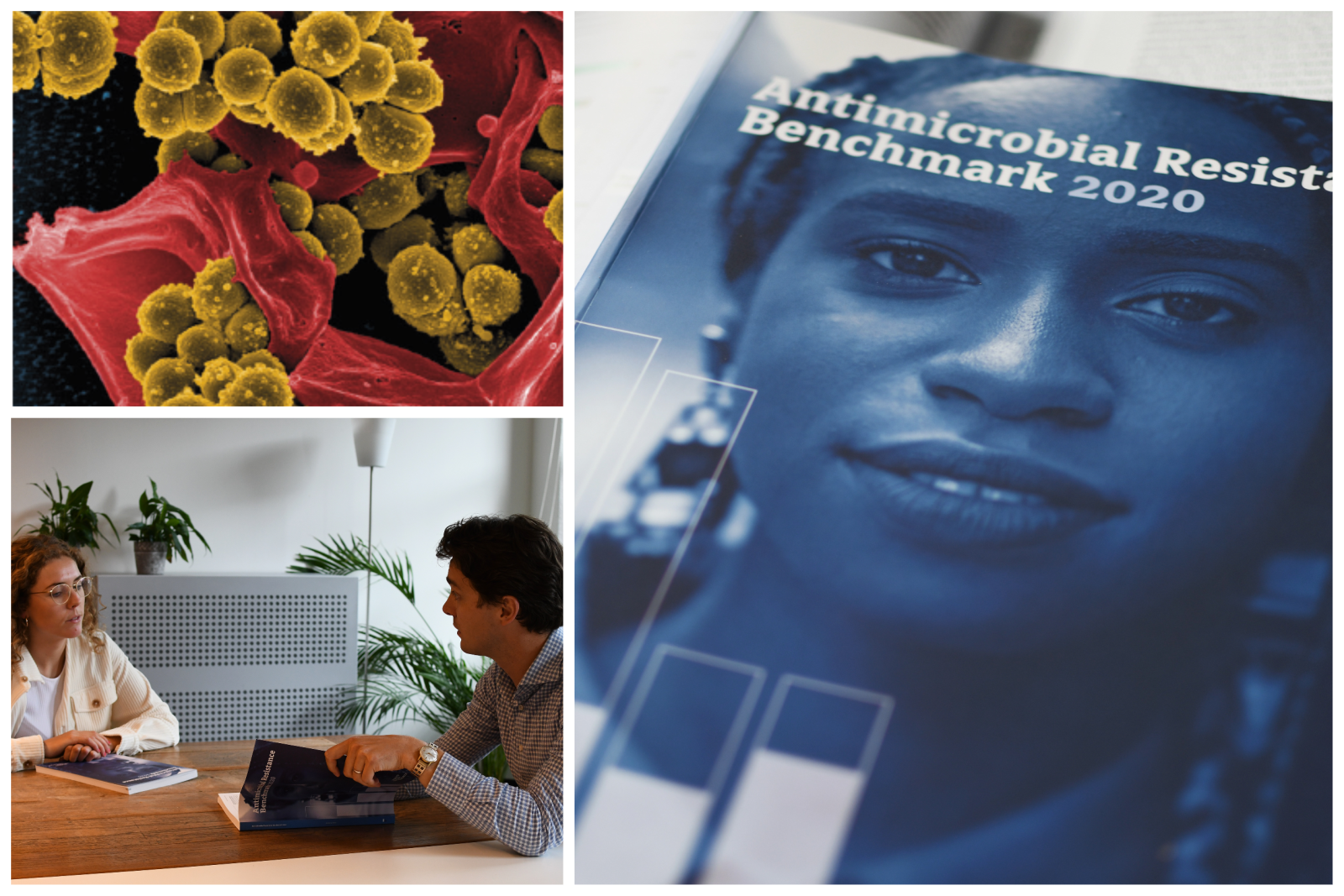Momentum against AMR, as metrics for next Benchmark take shape
As a first step, the Foundation launched a series of working sessions with company specialists, in order to dive into the best practices and explore how they can be effectively transferred and tailored to other products and countries. Participants included senior market access and pricing leads as well as access and global health directors from pharmaceutical companies evaluated in the 2020 Benchmark.
One major theme of discussion was how pharmaceutical companies can improve access and stewardship planning for R&D projects even though the space for developing and delivering new antimicrobials remains challenging. The 2020 Benchmark identified best practice from five companies in this area: Entasis, GSK, Johnson & Johnson, Pfizer and Tetraphase each have at least one late-stage project with both an access and stewardship plan, to make antibiotic candidates accessible upon market entry, while also ensuring their prudent use.

Sense of momentum
The sessions revealed a sense of momentum within certain companies, with some sharing that they are exploring new R&D partnerships, as well as tactics such as licensing to help ramp up access in a responsible manner. In the area of stewardship, more companies expressed a willingness to publicly share further details of how they monitor the spread of disease, including their raw surveillance data. The next Benchmark will track whether these plans come to fruition.
"This momentum needs to be safeguarded," says Jayasree K, Iyer, Executive Director of the Access to Medicine Foundation. "We can’t take companies' commitment for granted. The tough market conditions must be replaced through a mix of public and private investment to ensure a healthy ecosystem of pharmaceutical innovation, production and supply."
New AMR Action Fund, with pharma companies among the investors, committing to to bring 2-4 new antibiotics to patients by 2030.
66 countries report AMR data to WHO's Global Antimicrobial Resistance and Use Surveillance System (GLASS)
UK launches pilot of fully de-linked 'Netflix' subscription modelto incentivise antibiotic R&D.
New Dutch Public-Private Consortium to Reduce Emissions from Antibiotics Production
Using the Benchmark as a tool for investors
The 2020 AMR Benchmark was launched at the World Economic Forum in January, alongside the launch of the Investor Year of Action on Antimicrobial Resistance. The initiative is backed by UN-Supported Principles for Responsible Investment (UNPRI), the Access to Medicine Foundation, FAIRR and the UK Department of Health and Social Care. It aims to encourage investors to use an “AMR lens” when making decisions and engaging with companies.
The initiative's partners are currently developing a series of concrete steps, such as commissioning research or developing specific tools, that investors can take to advance understanding of and engagement on the materiality and impact of AMR. Investor partners will be encouraged to directly engage investee companies on the risks, opportunities and impacts of antimicrobial resistance.
Toward the next Antimicrobial Resistance Benchmark
The methodology for the next Benchmark is currently being refined. The process centres on building consensus among experts on where pharmaceutical companies have the potential for making the biggest change on AMR. The Benchmark team has been gathering viewpoints from stakeholders from international organisations, governments, NGOs, pharmaceutical companies, research centres and other initiatives addressing AMR.
“The 2020 Benchmark reveals the current state of play when it comes to industry efforts to curb AMR. The next methodology will identify whether and how the priorities for pharmaceutical companies have evolved when it comes to limiting the emergence and spread of AMR,” says Fatema Rafiqi, Research Programme Manager for the Antimicrobial Resistance Benchmark. “Which is why we talk to the top AMR experts – the backdrop is complex, with tough economics underpinning this market."
In a virtual meeting in June, the Expert Committee (EC) for the AMR Benchmark reviewed methodology proposals for the next Benchmark to reaffirm its rigour and capacity for trend analysis. The EC members are experts from the World Health Organization (WHO), top-level academic centres, organisations from low- and middle-income countries, investors and the pharmaceutical industry.
The 2020 Expert Committee
Chair of the Committee, Hans Hogerzeil, Professor Emeritus of Global Health at the University of Groningen and former WHO Director for Essential Medicines and Pharmaceutical Policies
Gregory Frank, Biotechnology Innovation Organization
Sudarshan Jain, Indian Pharmaceutical Alliance
Joakim Larsson, University of Gothenburg
Marc Mendelson, University of Cape Town
Maria Larsson Ortino, Legal & General Investment Management
Mirfin Mpundu, ReAct Africa
Sarah Paulin, WHO (observer)
The EC confirmed the decision to keep the Benchmark's focus on drug-resistance in bacterial and fungal pathogens. Plus, in a change from previous Benchmark reports, findings relating to companies in the small- and medium-sized enterprise category (SMEs) will be published in a separate, dedicated report. This will provide a deeper contextualisation of the current state of innovation on new antimicrobials developed by SMEs, including case studies.
The Benchmark research team is now resolving specific questions raised by the EC and finalising the analytical framework, before the publication of the final methodology in October. The 2021 Antimicrobial Resistance Benchmark is planned for publication in late 2021.
The Access to Medicine Foundation, which publishes the AMR Benchmark, is an independent non-profit organisation based in the Netherlands. It aims to advance access to medicine in low- and middle-income countries by stimulating and guiding the pharmaceutical industry to play a greater role in improving access to medicine. The 2020 AMR Benchmark covers 19 indicators across three areas of measurement: Research & Development; Responsible Manufacturing; and Appropriate Access & Stewardship. The AMR Benchmark is funded by UK AID and the Netherlands Ministry of Health, Welfare and Sport.